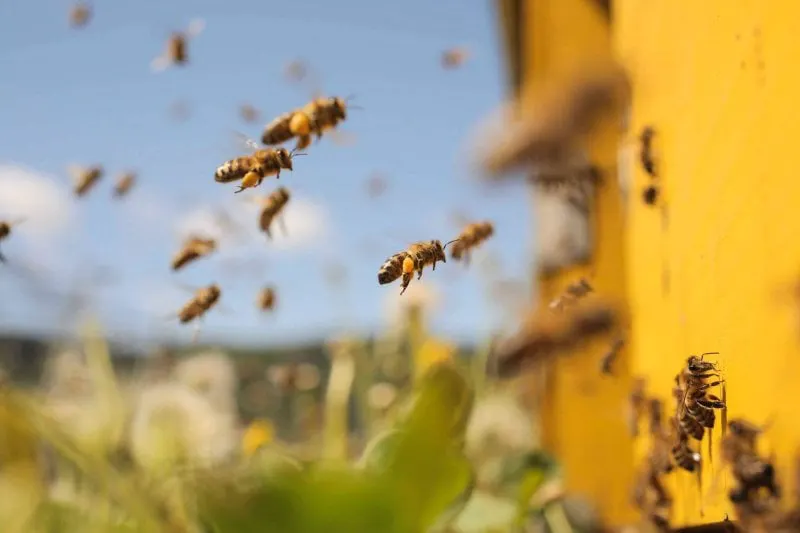Viewpoint: Why is National Geographic embracing simplistic activist narratives on nuanced pesticide controversies?
Viewpoint: Why is National Geographic embracing simplistic activist narratives on nuanced pesticide controversies?


For more than a century, National Geographic has produced a high-quality magazine that is well-grounded in science, history and culture. Lately, however, the editors have allowed agenda-driven articles based on flawed research to slip in between the covers.
Take, for example, the latest piece by science writer Elizabeth Royte, which focused on the work of Jonathan Lundgren, who is portrayed as a hard-working scientist-farmer. He claims that widely used, state-of-the-art neonicotinoid insecticides “may be a threat to mammals,” as well as to bees (an allegation that has been thoroughly debunked).
…
Lundgren became a martyr to the activist community following his departure from a research position at the U.S. Department of Agriculture after bending ethical rules in support of his personal agenda. Now that he’s a private citizen, his crusade against modern pesticides has accelerated.
…
The experiment appears to have been specifically engineered to produce the desired conclusion that “pesticides are bad,” rather than an honest effort to get unbiased results. It followed a classic hit-and-run pattern:
- Step one: Take a small sample size of your test subjects.
- Step two: Force feed them with a ludicrously large amount of the substance you intend to vilify.
- Step three: Make outsized claims about the risks posed by that substance – even though no animal would ever encounter such high doses in the normal course of events.
- Step four: Issue press releases and schedule media interviews.
The reason this technique works so well is that, in high enough doses, almost everything is toxic, or even fatal. Pathological drinking of water, or psychogenic polydipsia, is a life-threatening condition, as it may lead to severe hyponatremia (low blood sodium), leading to cardiac arrest, coma and cerebral edema. Even excessive ingestion of nutmeg can be toxic and occasionally fatal.
Nobody would suggest that water and nutmeg should be banned by the government as a precaution against their potentially toxic effects, but that’s exactly what Lundgren and company want to do with the organic food and agriculture industries’ nemesis: neonicotinoid pesticides.
All of these issues should have raised concerns at National Geographic. Over-the-top claims should always be treated with editorial skepticism, which makes one wonder what has changed at the magazine if they’re letting such whoppers slide by.
Read the original post

 | Videos | More... |

Video: Nuclear energy will destroy us? Global warming is an existential threat? Chemicals are massacring bees? Donate to the Green Industrial Complex!
 | Bees & Pollinators | More... |

GLP podcast: Science journalism is a mess. Here’s how to fix it

Mosquito massacre: Can we safely tackle malaria with a CRISPR gene drive?

Are we facing an ‘Insect Apocalypse’ caused by ‘intensive, industrial’ farming and agricultural chemicals? The media say yes; Science says ‘no’
 | Infographics | More... |

Infographic: Global regulatory and health research agencies on whether glyphosate causes cancer
 | GMO FAQs | More... |

Why is there controversy over GMO foods but not GMO drugs?

How are GMOs labeled around the world?

How does genetic engineering differ from conventional breeding?
 | GLP Profiles | More... |

Alex Jones: Right-wing conspiracy theorist stokes fear of GMOs, pesticides to sell ‘health supplements’




 Trust issues: What happens when therapists use ChatGPT?
Trust issues: What happens when therapists use ChatGPT? Fighting deforestation with CO2: Biotechnology breakthrough creates sustainable palm oil alternative for cosmetics
Fighting deforestation with CO2: Biotechnology breakthrough creates sustainable palm oil alternative for cosmetics California, Washington, Oregon forge immunization alliance to safeguard vaccine access against federal undermining
California, Washington, Oregon forge immunization alliance to safeguard vaccine access against federal undermining Viewpoint — Fact checking MAHA mythmakers: How wellness influencers and RFK, Jr. undermine American science and health
Viewpoint — Fact checking MAHA mythmakers: How wellness influencers and RFK, Jr. undermine American science and health 30-year-old tomato line shows genetic resistance to devastating virus
30-year-old tomato line shows genetic resistance to devastating virus Viewpoint: Video — Big Solar is gobbling up productive agricultural land and hurting farmers yet providing little energy or sustainabilty gains
Viewpoint: Video — Big Solar is gobbling up productive agricultural land and hurting farmers yet providing little energy or sustainabilty gains The free-range chicken dilemma: Better for birds, but with substantial costs
The free-range chicken dilemma: Better for birds, but with substantial costs ‘You have to treat the brain first’: Rethinking chronic pain with Sanjay Gupta
‘You have to treat the brain first’: Rethinking chronic pain with Sanjay Gupta
